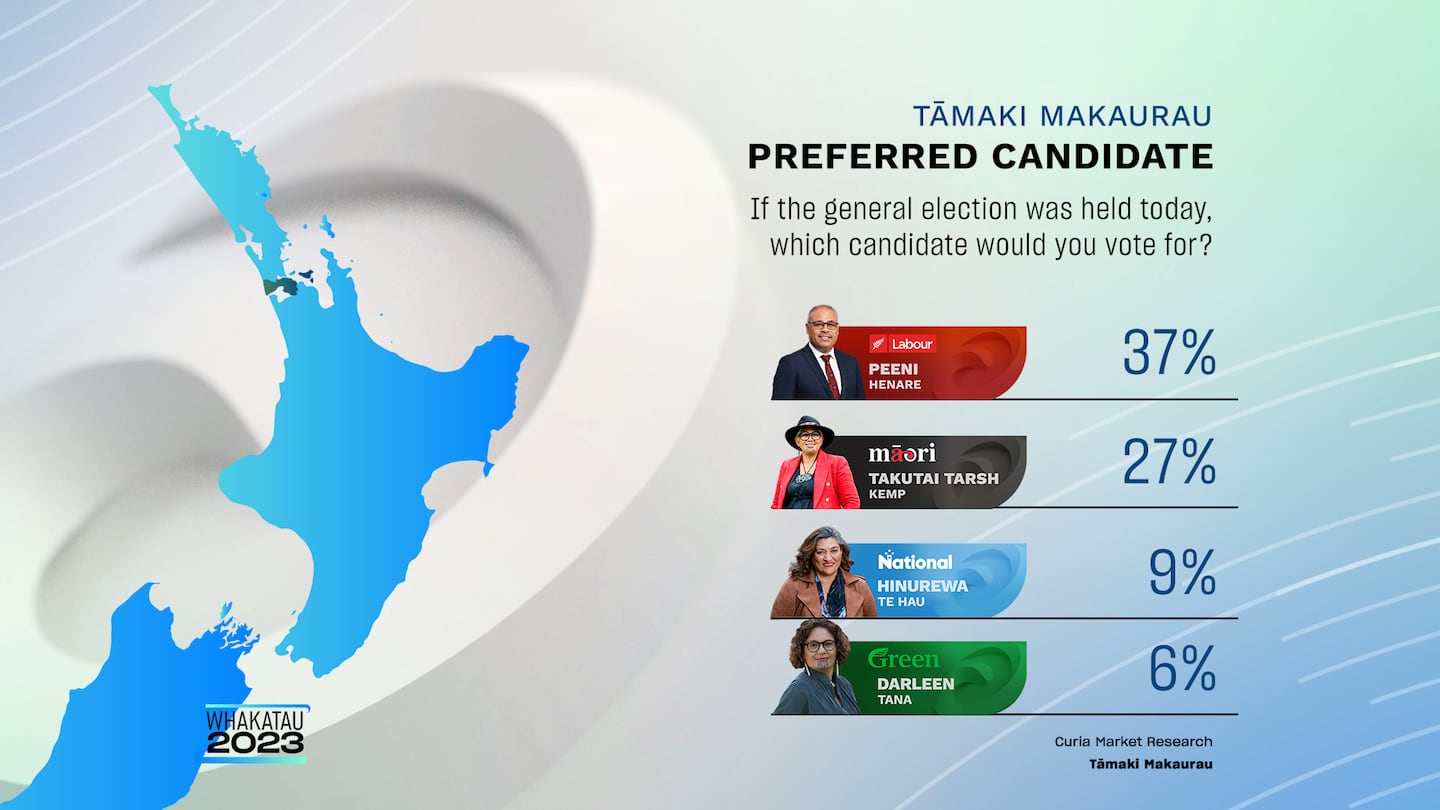An exclusive Whakaata Māori poll has Labour’s incumbent MP Peeni Henare in the lead for the Tāmaki Makaurau electorate.
But he may yet be unseated if younger voters turn out in large numbers and back his Te Pāti Māori opponent Takutai Kemp.
In the poll, completed last Sunday, Henare is on 37% and Kemp is on 27%.
Surprisingly, the third-highest place went to National’s Hinurewa Te Hau who won 9%. This is the first time National has put up a candidate in a Māori seat for 20 years.
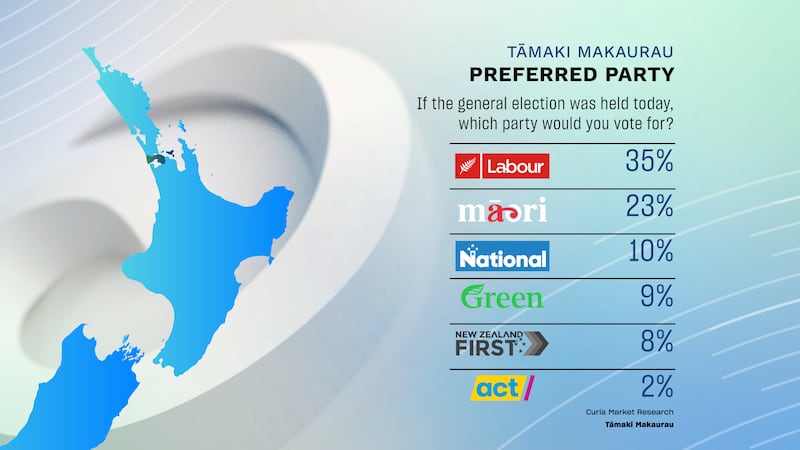
Henare is 14th on the Labour Party list, so could still return to Parliament if the youth vote crowns Kemp. Kemp herself is sixth on the Te Pāti Māori list but unlikely to become a list MP if she fails to take Tāmaki Makaurau. Te Hau is 38th on the National Party list but could only make it to Parliament on the list if there is a “blue tide” come Saturday.
The Greens’ candidate, Darleen Tana, who has been emphasising that she most wants the electorate to party-vote Greens, still garnered 6% and Vision New Zealand’s Hannah Tāmaki took 4%. Tana is 13th on the Green Party list and may, like Kemp and Henare, enter Parliament should votes go the Greens’ way.
But there is, as in most Māori electorates polled, a big undecided group, this time of 11%.
The large undecided votes are also affecting Te Tai Tonga at 18%, Hauraki-Waikato 14%, Te Tai Hauāuru 16%, Te Tai Tonga 14%, Waiariki 15%, Te Tai Tokerau 14% and the close race in Ikaroa-Rāwhiti between Meka Whaitiri and Cushla Tangaere-Manuel (29%). All political parties are hoping to influence these voters before polls close on Saturday night.
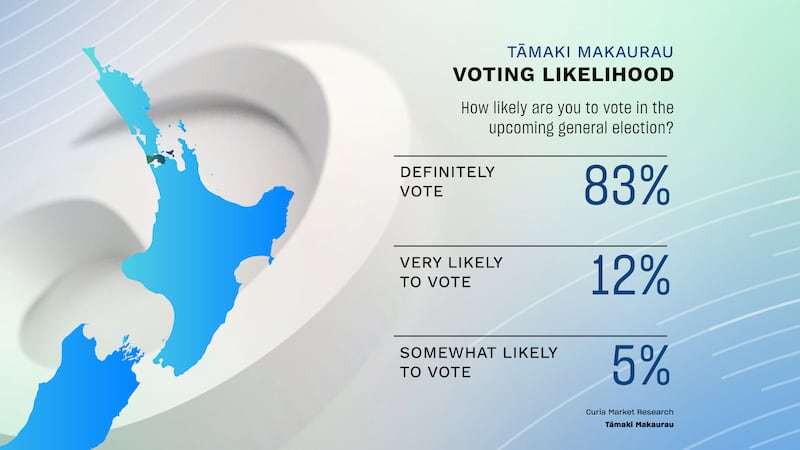
Among Labour voters, Henare attracted more men at 41% than women and Kemp drew more women 34% than men 20%. Te Hau also found more favour with men at 14% than women 4%.
Henare gained 52% of voters aged over 60 and 39% of 40 to 59-year-olds but only 25% of 18 to 39-year-olds. Kemp pulled in 40% of that young group and only 14% of the over-60s. Most of the unsure voters were in the 18-39 group at 14% and 11% in the 40 to 59-year-old group.
What may help Henare hold the seat is that 92% of voters over 60 say they will definitely vote. The 18 to 39-year-old age group has the lower figure of 80% definitely voting and 14% very likely to vote, though Kemp has been arguing she has seen considerable support on social media among young people.
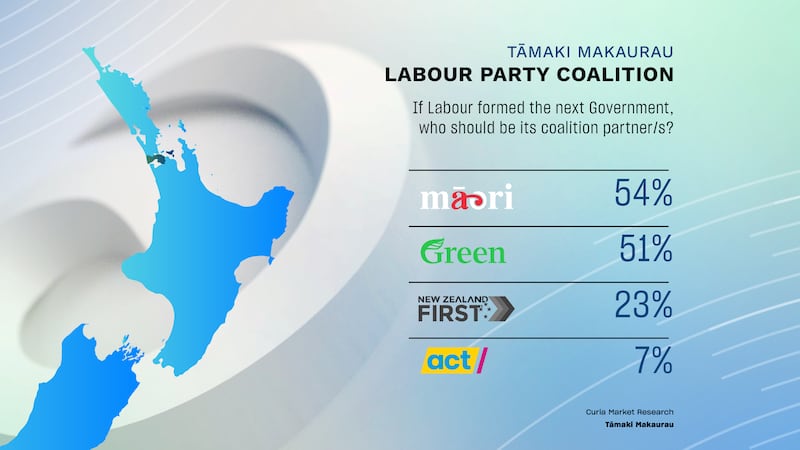
Tāmaki Makaurau, the most urban of the Māori electorates, follows the lead of the others, with respondents opting for Labour in the party vote (35%), followed by Te Pāti Māori (23%), National (10%), Greens (9%) and New Zealand First (8%). Only 4% were undecided.
Labour drew most of its votes from middle to older age voters while Te Pāti appealed more to younger voters. NZ First attracted most of its votes from the over-60s.
If Labour can form the next government, Tāmaki voters want Te Pāti Māori as a partner (54%) closely followed by the Greens (51%) and in third place, NZ First (23%).
By age groups Te Pāti Māori is favoured by the younger voters but support for NZ First and the Greens is spread across the three groups.
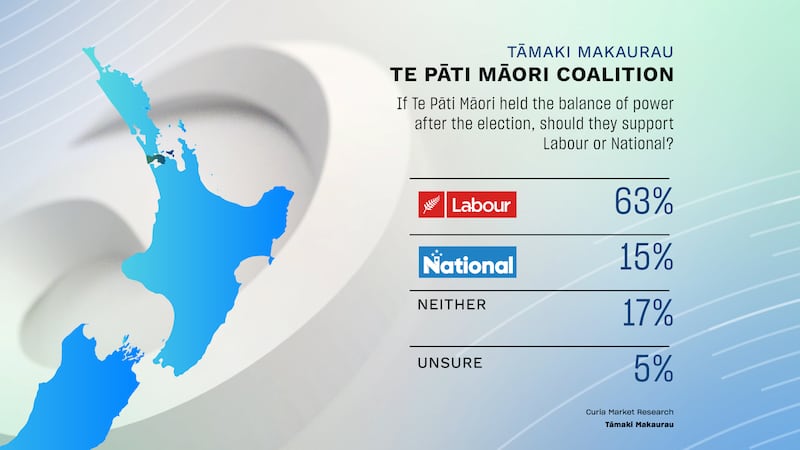
Most Tāmaki voters think they will be better off under a Labour-Te Pāti Māori- Greens government (45%) while 21% say there will be no difference, 23% think they will be worse off and 11% are unsure.
If Te Pāti Māori held the balance of power, 63% preferred it to support Labour, 15% National, neither 17% and unsure 5%.
If National can form the next government, the voters’ first choice for a coalition partner is Te Pāti Māori (39%), Greens (30%) NZ First (27%) and ACT (20%). More of the youngest voters favoured Te Pāti Māori while the oldest voters rated NZ First.
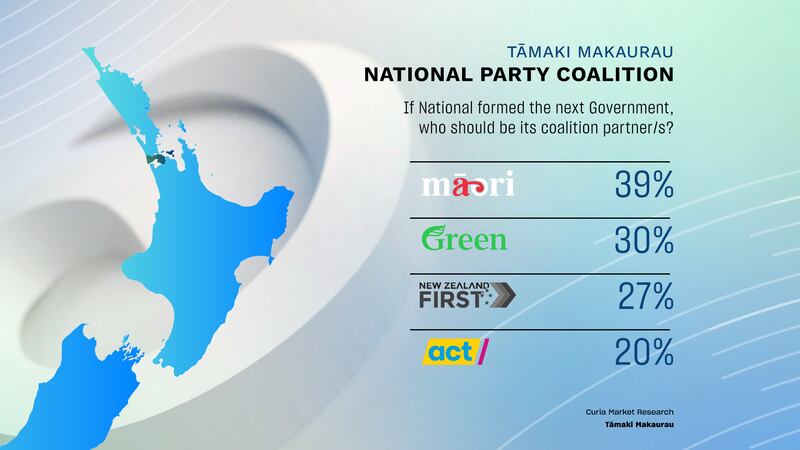
The voters were gloomy about a National-ACT government, with 53% convinced they would be worse off, with 22% thinking they would be better off and 15% no difference.
The Aucklanders had one single-biggest issue - cost of living (35%). Other issues were economy (9%), law and order (7%) and poverty (6%).
Tāmaki favours Chris Hipkins as prime minister (34%) ahead of Christopher Luxon at 13%, Winston Peters at 11%, Rawiri Waititi 8%, Marama Davison 5% and Debbie Ngarewa-Packer 3%.
A total of 500 registered voters in Tāmaki Makaurau were polled by landline, mobile and online with a margin of error of plus or minus 4.4 per cent at the 95% confidence level.
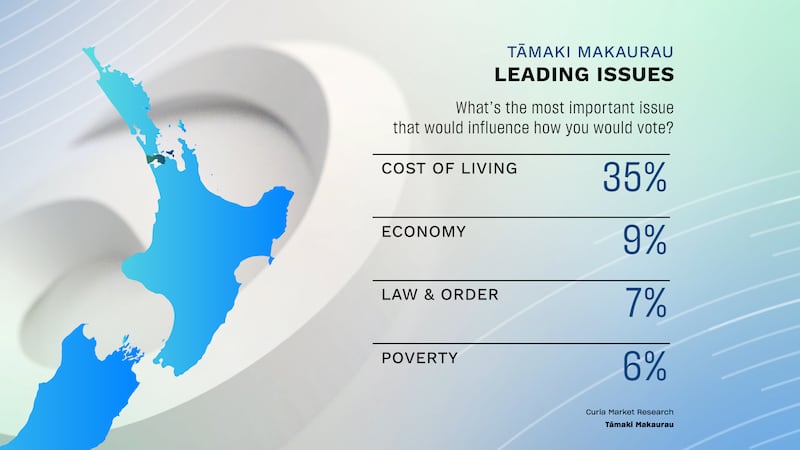
Join Whakaata Māori from 7pm on Saturday for WHAKATAU 2023 Election Night where crews are live across multiple locations. Post election highlights will screen from 11am on Sunday.

